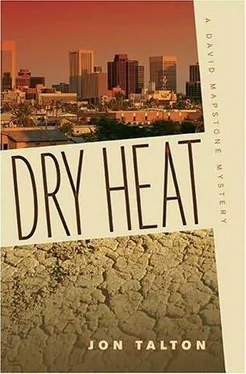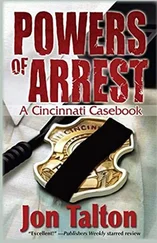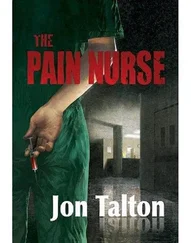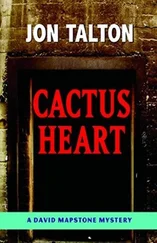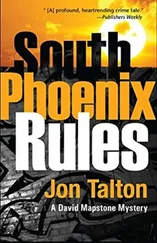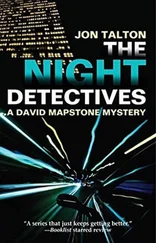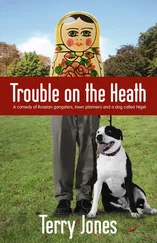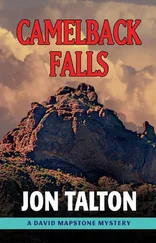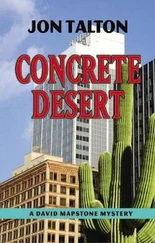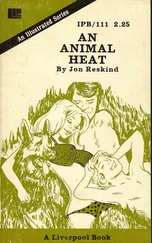Jon Talton - Dry Heat
Здесь есть возможность читать онлайн «Jon Talton - Dry Heat» весь текст электронной книги совершенно бесплатно (целиком полную версию без сокращений). В некоторых случаях можно слушать аудио, скачать через торрент в формате fb2 и присутствует краткое содержание. Жанр: Полицейский детектив, на английском языке. Описание произведения, (предисловие) а так же отзывы посетителей доступны на портале библиотеки ЛибКат.
- Название:Dry Heat
- Автор:
- Жанр:
- Год:неизвестен
- ISBN:нет данных
- Рейтинг книги:3 / 5. Голосов: 1
-
Избранное:Добавить в избранное
- Отзывы:
-
Ваша оценка:
- 60
- 1
- 2
- 3
- 4
- 5
Dry Heat: краткое содержание, описание и аннотация
Предлагаем к чтению аннотацию, описание, краткое содержание или предисловие (зависит от того, что написал сам автор книги «Dry Heat»). Если вы не нашли необходимую информацию о книге — напишите в комментариях, мы постараемся отыскать её.
Dry Heat — читать онлайн бесплатно полную книгу (весь текст) целиком
Ниже представлен текст книги, разбитый по страницам. Система сохранения места последней прочитанной страницы, позволяет с удобством читать онлайн бесплатно книгу «Dry Heat», без необходимости каждый раз заново искать на чём Вы остановились. Поставьте закладку, и сможете в любой момент перейти на страницу, на которой закончили чтение.
Интервал:
Закладка:
Clouds had come in from the west overnight, and little hints of rain floated into the windshield. It would be the first trace we’d gotten all year. For a few hours, everything seemed a little better. When the deputy deposited me back on Cypress Street, I went inside and showered reluctantly, wishing I could keep the physical evidence of her on my skin and in my hair for the days to come. I had no idea when I might see her again.
But it was a workaday Tuesday, if your workaday included a wife who had been kidnapped by the national security state, the threat of Russian mobsters, and the deepening mystery of John Pilgrim’s badge. It had been nearly a month since Weed’s body was found. At least it was raining. I took comfort from the drops hitting the convertible top as I drove down to the old courthouse. Inside, I walked past the new guard, a slight kid named Alfredo, who nodded and looked away. I took the winding stairs two at a time, feeling some wonderfully sore muscles in my legs and abdomen. I missed Lindsey already.
The old courthouse was slowly being restored, floor by floor. Four years earlier, when I had taken that “temporary” job for Peralta, the imposing brown masonry building had been nearly empty. The marriage license bureau was in the basement. And I set up my history shop on the fourth floor, in an office that had once held the sheriff. In the 1940s, the building was also home to Duke Simms and the corrupt commissioners investigated by John Pilgrim. A floor above me was the old jail, which shut down in the 1960s. When I worked late, I tried not to conjure the ghosts of prisoners and jailers. Now, the county wanted the old building back, and was slowly refurbishing each floor. Soon, I suspected, I would be forced to find a new office. But while the county suffered through a fiscal crisis, the restoration had stalled on the third floor. And the fourth floor was my private sanctuary.
I reached the top of the staircase and crossed the polished tiles of the atrium, then turned down the hallway that led to my office. But even at the head of the hallway, I could see my door was ajar. I instinctively moved to the wall and stopped to listen. Now the feeling in my legs was sudden fear, a rubbery sickness in the muscles. The dryness in my mouth was unrelieved by the tapping of rain on the big windows behind me. Nothing moved in the dimly lit hallway. No sound came from beyond the glass of my office door, and the only light came from the windows beyond. But the door stood open maybe two feet. I edged down the marble floor, past the dark glossy wood frames of other doors and transoms. I always locked my door. The courthouse janitorial staff, alas, never made it to four unless I called them for a special trip.
I paused ten feet from the office door and slid the Python into my hand. Then I took a handful of quiet steps and settled against the wall of my office. DEPUTY DAVID MAPSTONE, SHERIFF’S OFFICE HISTORIAN, the sign said. No sounds came from beyond the open door. Looking in, I could see changes. Someone had been in there. Gripping the magnum in both hands I went through the door and swept the big room with the barrel. I had no doubt that I looked vaguely ridiculous.
The office was clear of danger, but it had been visited. Turning on the lights, I saw the extent of it. Drawers weren’t quite closed. Files were lightly tousled. The Pilgrim case bulletin board was moved several feet from where I left it. Whoever had been here made little effort to conceal their visit. Then I heard footsteps and wheeled, sighting down the barrel at the guard.
“Take it easy!” he said.
“Somebody broke in,” I said, holstering the gun.
“I had to let them in, sir.”
I stared at him.
“It was the FBI. Three of them. They showed me their IDs.”
“When?”
“They were here about an hour ago.”
I eased myself down into the wooden swivel chair.
“FBI?” I asked. He nodded. “And they just walked into a county office? Wait until Peralta hears that.”
Alfredo coughed softly. “The sheriff was here. He told me to let them in.”
I felt a heaviness in my feet and let him say it again.
“Who else was here?”
“Well, a woman detective was with them, too,” Alfredo said.
“Kate Vare?”
“They all seemed in a hurry. I thought they were just waiting for you. I didn’t think…”
I just glowered at him.
“I’m sorry, sir.” he said. “What does it mean?”
I said softly, “I wish I knew.”
When I didn’t say anything more, he disappeared out the door and I heard his footsteps in the empty hallway. I was left alone with my paranoia. Outside the expansive arched windows, rain bathed the bland skyscrapers of downtown. The raindrops made a soft roar in my ears. I picked up the phone and called Peralta’s office. His secretary said he had gone out on a raid. I took down the location, thought for a few moments, then turned out the lights, locked the door, and walked loudly back toward the staircase.
Forty-five minutes later, I pulled off Interstate 17 and followed the directions Peralta’s secretary gave me. They led to a trailer off in the high desert northeast of New River. But this was no wilderness idyll. The place was littered with junk cars, old refrigerators, and anonymous castoffs from the machine age. Trash sat in six-foot piles, and dangled from the branches of palo verde trees. Now it was also cluttered with sheriff’s vehicles. I showed my badge and a deputy in a yellow slicker waved me through the perimeter. It was slightly nastier than the usual meth bust. Another deputy told me that in addition to the illegal substances, the bust had yielded a half dozen starved horses, a goat, twenty wild dogs, and six emaciated children. Let’s just say it was a piece of Arizona that the chamber of commerce didn’t want the tourists to see.
Peralta wasn’t there. So I bumped back over the muddy dirt road to the interstate and got on the cell phone. I tried his private cell, a highly classified number. But it only rang and beeped, not even a greeting on the message system. I told him to call me and hung up. I was tempted to call Eric Pham, Kate Vare. Demand to know what they were doing searching my office, what hidden agendas were being played out at my expense. But an interior voice stopped me. I drove back to the city with a head full of thoughts and questions, none of them good.
Chapter Twenty-three
The phone rang once. Just enough to wake me. No more rings followed, but the ring’s echo seemed to linger in the room. When I picked up the receiver, only a dial tone waited on the line. The clock by the bed said 3:13. I hadn’t been afraid of the dark since I was a little boy. So why was my heart hammering against my chest? Lord Nelson had suffered from panic attacks and night sweats. That was no comfort at the moment. Around me was the familiar old bedroom, where Lindsey and I played, laughed, and read to each other. The nightstand on my side of the bed held a thick volume with a royal blue binding: Woodrow Wilson and the Decline of the Progressive Age, by Daniel J. Milton. Autographed by the author. I knew the inscription by heart: “To David Mapstone, who is gifted with a fine, if fey, mind.” Tonight the fey ruled. I reached beside the book to find the comforting bulk of the Colt Python, and I slid out of bed.
I prowled the house, nude except for the big revolver, conscious of how often I was drawing down lately. “Size matters,” I would have joked to Lindsey. But Lindsey wasn’t there. Pasternak met me outside the bedroom door and followed me, agitated just like me. Only a fool would keep living in this house after his wife had been targeted by the Russian mafia. We didn’t even have an alarm. I stepped into the living room and leaned against the wall, listening. The light flowed blue-white through the picture window. Everything looked normal, the high ceiling, the heavy iron chandelier, stairs that opened onto a walkway that led to the garage apartment, the floor-to-ceiling bookshelves.
Читать дальшеИнтервал:
Закладка:
Похожие книги на «Dry Heat»
Представляем Вашему вниманию похожие книги на «Dry Heat» списком для выбора. Мы отобрали схожую по названию и смыслу литературу в надежде предоставить читателям больше вариантов отыскать новые, интересные, ещё непрочитанные произведения.
Обсуждение, отзывы о книге «Dry Heat» и просто собственные мнения читателей. Оставьте ваши комментарии, напишите, что Вы думаете о произведении, его смысле или главных героях. Укажите что конкретно понравилось, а что нет, и почему Вы так считаете.
